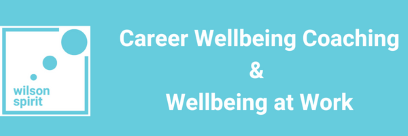The Power of Hobbies
The Power of Hobbies: Boosting Career Wellbeing
In the fast-paced world of work, it’s easy to become consumed by professional responsibilities. However, cultivating a hobby outside of work can significantly enhance your career wellbeing.
Here’s why:
1. Stress Reduction
Engaging in a hobby offers a mental escape from work related stress. Whether it’s painting, gardening, or playing a musical instrument, hobbies provide a relaxing outlet that helps to reduce stress levels. This, in turn, leads to better mental health and increased productivity at work.
2. Improved Creativity and Problem-Solving
Hobbies stimulate the brain in different ways than work tasks. Activities like writing, crafting, or playing chess enhance creative thinking and problem solving skills. This creative boost can lead to innovative ideas and solutions in your professional life.
3. Enhanced Time Management
Balancing a hobby with work requires good time management skills. Learning to allocate time for hobbies helps improve overall efficiency and time management at work, leading to better organisation and productivity.
4. Networking Opportunities
Many hobbies, especially those that involve group activities like sports, book clubs, or volunteer work, offer great networking opportunities. Meeting people with similar interests can lead to valuable professional connections and friendships that enrich your career and home life.
5. Personal Growth and Confidence
Mastering a new skill or improving in a hobby can boost your self-esteem and confidence. This sense of achievement and personal growth translates into greater confidence in your professional abilities.
Finding Your Hobby
If you don’t currently have a hobby, finding one can seem daunting. Here are some steps to help you discover your passion:
- Reflect on Interests: Think about activities you enjoyed in the past or things you’ve always wanted to try.
- Explore New Activities: Take classes, attend workshops, or join clubs to explore different activities.
- Consider Your Personality: Choose hobbies that align with your personality - introverts might enjoy solo activities like reading or painting, while extroverts might prefer social hobbies like team sports or dancing.
- Ask for Recommendations: Talk to friends, family, or colleagues about their hobbies and get recommendations.
- Experiment and Be Patient: It’s okay if you don’t find the perfect hobby right away. Try different things and be patient with the process.
Making Time for Your Hobby
Balancing a hobby with a busy work schedule requires intentional planning. Here’s how to make time for it:
- Schedule It: Treat your hobby like any other important appointment. Set aside specific times in your calendar dedicated to your hobby.
- Start Small: Begin with short, manageable sessions. Even 15 minutes a day can make a difference.
- Combine Activities: Find ways to integrate your hobby into your daily routine. For example, learn a new language whilst commuting.
- Prioritise: Recognise the importance of your hobby for your overall wellbeing and make it a priority.
- Set Boundaries: Protect your hobby time by setting boundaries at work and home.
Summary
Having a hobby outside of work is not just a leisure activity; it’s a vital component of career wellbeing. It reduces stress, fosters creativity, improves time management, expands your network, and enhances personal growth. By taking the time to find and nurture a hobby, you invest in your overall happiness and professional success.
So, what’s your hobby? Let us know in the comments
#WilsonSpirit #CareerWellbeing #Hobby #PowerOfHobbies #Thrive













